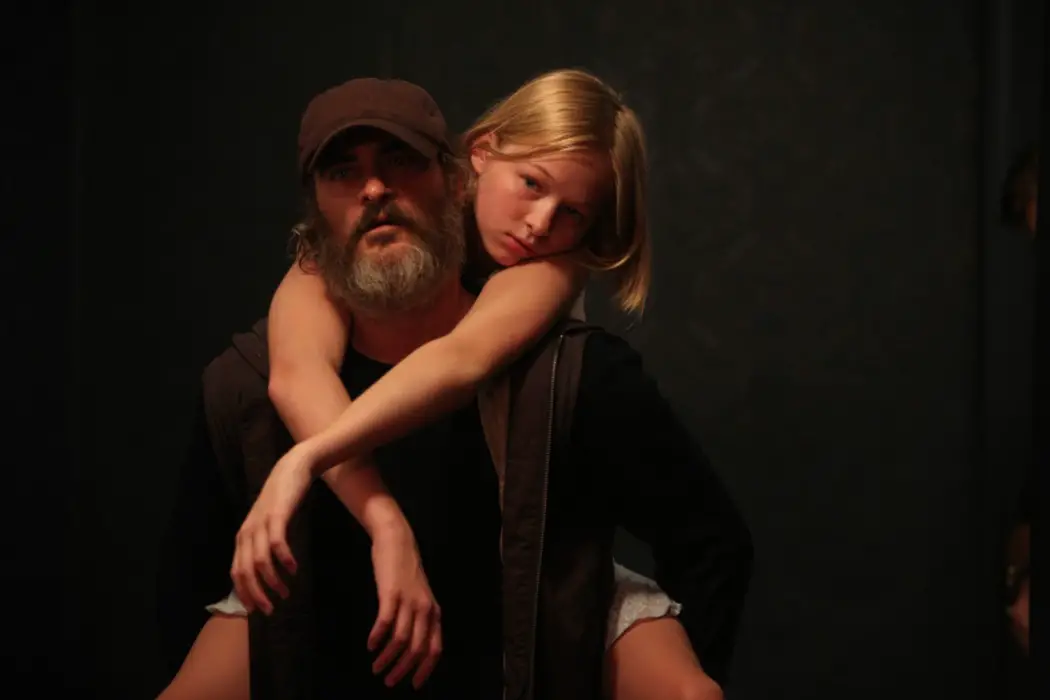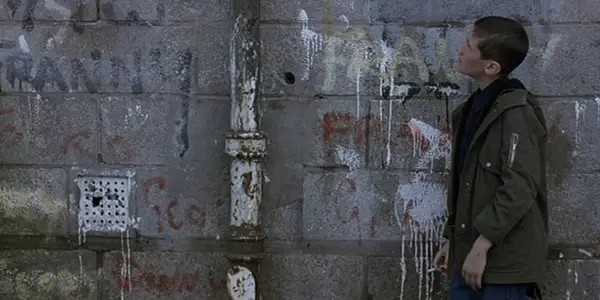We Need to Talk About Lynne Ramsay

Alexia (also known as Lexi) spends an alarming amount of…
Lynne Ramsay has never made a bad film. While that may be a subjective statement, Rotten Tomatoes and Metacritic appear to agree (at least for the time being). Not many directors, especially writer-directors like Ramsay, are able to boast such an impressive filmography. Not to mention, she hasn’t succumbed to making stereotypical cash grabs or “Oscar bait” as many others before her have.
All of her films are genuine artistic endeavors. Yet, despite such a remarkable career, Ramsay’s films have inexplicably never earned a single nomination at the Academy Awards or the Golden Globes. Her films have been nominated for and won several BAFTA awards, so why does it seem as though Hollywood refuses to recognize the incredible work of Ms. Ramsay?
Who is Lynne Ramsay?
For those who aren’t familiar with her, Lynne Ramsay is a Scottish filmmaker who’s responsible for feature films such as Ratcatcher, Morvern Callar, We Need to Talk About Kevin, and most recently, You Were Never Really Here. She has also directed numerous award-winning short films. In addition to her work as a director, Ramsay is also a screenwriter, producer, and cinematographer.

Underrated is an Understatement
It’s not that Ramsay’s films aren’t receiving praise or recognition, it’s that they aren’t receiving enough. How many directors out there have only created good films? Everyone’s career has some missteps, but all of Ramsay’s films thus far have been nothing short of brilliant. She claims to have a reputation for being “difficult” to work with, but there are countless male directors who have far worse reputations. And despite the bad reputations, these male directors get more recognition for their work and receive many more accolades.
This year alone, Ramsay deserved several nominations for You Were Never Really Here, which won best screenplay at last year’s Cannes Film Festival. You Were Never Really Here is more than just a film; it’s a visceral experience with evocative cinematography, immersive sound design, a mesmerizing score, stellar editing, and a hauntingly brilliant performance from Joaquin Phoenix. All of these spectacular elements wouldn’t have come together if it weren’t for Ramsay’s strong direction and talent behind the camera.
Not only is she one of the best directors working today, but she makes some of the boldest directing choices that consistently seem to pay off. Both You Were Never Really Here and We Need to Talk About Kevin aren’t so much movies as they are visual poetry.
With We Need to Talk About Kevin, Ramsay took Lionel Shriver’s 2003 novel of the same name and tore its structure apart in order to create something completely all her own. The novel is written in the form of letters that culminate with a shocking plot twist, which aren’t apparent in Ramsay’s film. Instead, she made a risky directorial decision and created a film that relies on vivid imagery, symbolism, and a nonlinear timeline to tell the same story. In the end, the results of Ramsay’s approach worked out beautifully.

We Need to Talk About Kevin may differ from the source material in terms of structure, but it captures the same feelings and makes full use of film as an artistic medium. The same can be said of Ramsay’s other film adaptations. Anyone can make an adaptation and stray from the source material, but it takes a skilled screenwriter and director to do this and still create a stunning work of art that can stand entirely on its own.
Total Sensory Experiences
In addition to creating breathtakingly poetic films, Lynne Ramsay always creates profound character studies with each of her works. Her films thoughtfully examine how people cope with grief, trauma, guilt, and death. She explores her characters’ psyche in such an artful way, through a lyrical style of storytelling, that she doesn’t need to spoon-feed the viewer with heavy-handed dialogue or exposition.
The most notable example of this comes in the form of Morvern Callar. In this film, Samantha Morton stars as an enigmatic character who makes morally questionable decisions throughout. Ramsay doesn’t tell us how we should feel about the film’s protagonist. Rather, she leaves it up to viewers to form their own opinions based on how they perceive the film.
There’s a lingering effect that follows each of Ramsay’s films. She crafts such stirring portraits of her characters that her films stay with viewers long after they’re over. Perhaps it’s because her penchant for visual storytelling results in such iconic shots that are utterly unforgettable. Her directorial debut, Ratcatcher opens with a shot of its protagonist, his face covered by a curtain. The opening of You Were Never Really Here has Joaquin Phoenix with a plastic bag over his head, echoing that memorable shot from Ratcatcher. Ramsay expertly composes shots that speak volumes with no dialogue necessary.

Not only does she tell her stories with enthralling abstract images, but she also understands the importance of sound and how it adds another layer to the experience. In an interview with Geoff Andrew she articulates, “Some people ignore the sound and you end up seeing something you might see on television and it doesn’t explore the form. Sound is the other picture… Sound creates a completely new world.” The way she combines sound and image makes for a powerful cinematic experience.
Female Auteurs Are Few and Far Between
From Small Deaths to You Were Never Really Here – and every film in between – we’re witnessing the work of a filmmaker at the top of her game. She consistently writes and directs captivating and noteworthy films and we should be celebrating her achievements far more than we already do.
If there are any films from Ramsay’s admirable filmography that you may have missed, you’re in luck. Morvern Callar, We Need to Talk About Kevin, and You Were Never Really Here are all currently available to stream for free with an Amazon Prime subscription. Plus, a few of her short films (Swimmer, Gasman, Small Deaths, and Kill the Day) can be found on YouTube or Vimeo.
What’s your favorite Lynne Ramsay film? Let us know in the comments below!
Does content like this matter to you?
Become a Member and support film journalism. Unlock access to all of Film Inquiry`s great articles. Join a community of like-minded readers who are passionate about cinema - get access to our private members Network, give back to independent filmmakers, and more.
Alexia (also known as Lexi) spends an alarming amount of time at the movies. When she's not working or writing, she's probably at the movies. When she's not at the movies, she's probably at home watching movies with her dog. Follow her on Letterboxd here: https://letterboxd.com/lexiamoriello













